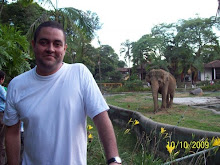In the late 19th century, the European imperial powers engaged in a major territorial scramble and occupied most of the continent, creating many colonial territories.

___________
http://upload.org/commons/b/b1/Colonial-Africa.png
Today, Africa contains 54 sovereign countries, most of which still have the borders drawn during the era of European colonialism. Since colonialism, African states have frequently been hampered by instability, corruption, violence, and authoritarianism. The vast majority of African states are republics that operate under some form of the presidential system of rule. However, few of them have been able to sustain democratic governments on a permanent basis, and many have instead cycled through a series of coups, producing military dictatorships.
Although it has abundant natural resources, Africa remains the world´s poorest and most underdeveloped continent, due to a variety of causes that may include the spread of deadly diseases and viruses (notably HIV/AIDS and malaria), corrupt governments that have often committed serious human rights violations, failed central planning, high levels of illiteracy, lack of access to foreign capital, and frequent tribal and military conflict (ranging from guerrilla warfare to genocide).
By most estimates, well over a thousand languages (UNESCO has estimated around two thousand) are spoken in Africa. Most are of African origin, though some are of European or Asian origin. Africa is the most multilingual continent in the world, and it is not rare for individuals to fluently speak not only multiple African languages, but one or more European ones as well.
___________
http://esa.un.org/unpp/africa.html
ORGANISATIONAL CULTURE
Ubuntu:
It is the principle of caring for each other´s well-being… and a spirit of mutual support… Each individual´s humanity is ideally expressed through his or her relationship with others and theirs in turn through a recognition of the individual´s humanity. Ubuntu means that the people are people through other people. “Umuntu ngumuntu ngabantu”. It also acknowledged both the rights and responsibilities of every citizen in promoting individual and social well-being.

___________
http://www.capetown.travel/images/uploads/ubuntu_festival.jpg
QUESTION
Based on the case study: African Bank Miners Credit.
What is Ubuntu ?. How was it applied to support the merging process of the two companies ?. Give 3 examples.
Ubuntu is a philosophy that can be used in the management process. When the merging process took place, a series of Ubuntu related tales were handed to the employees to explain and implement the changes in management style.
- The tale of the bird and the badger was used to explain the concept of growth. Employees were told like the bird and the badger, we must strive to work together.
- The concept of social responsibility was communicated using the tale of the bird that learned to fly. Employees were told it was the bank’s responsibility to enhance the lives of the community from which its clients were drawn.
- And the tale of why a duck learned to swim was used to communicate safety in the workplace.

No comments:
Post a Comment